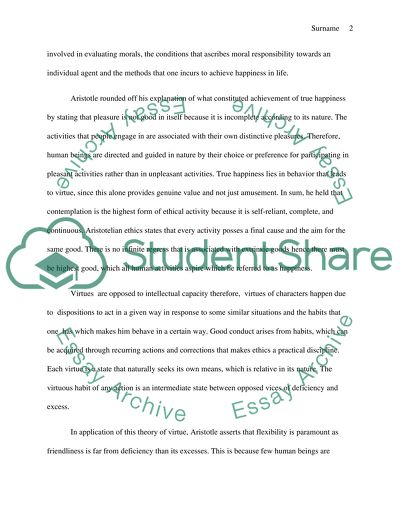Cite this document
(“Aristotle's ethics Essay Example | Topics and Well Written Essays - 1250 words”, n.d.)
Retrieved from https://studentshare.org/philosophy/1393337-aristotle
Retrieved from https://studentshare.org/philosophy/1393337-aristotle
(Aristotle'S Ethics Essay Example | Topics and Well Written Essays - 1250 Words)
https://studentshare.org/philosophy/1393337-aristotle.
https://studentshare.org/philosophy/1393337-aristotle.
“Aristotle'S Ethics Essay Example | Topics and Well Written Essays - 1250 Words”, n.d. https://studentshare.org/philosophy/1393337-aristotle.


